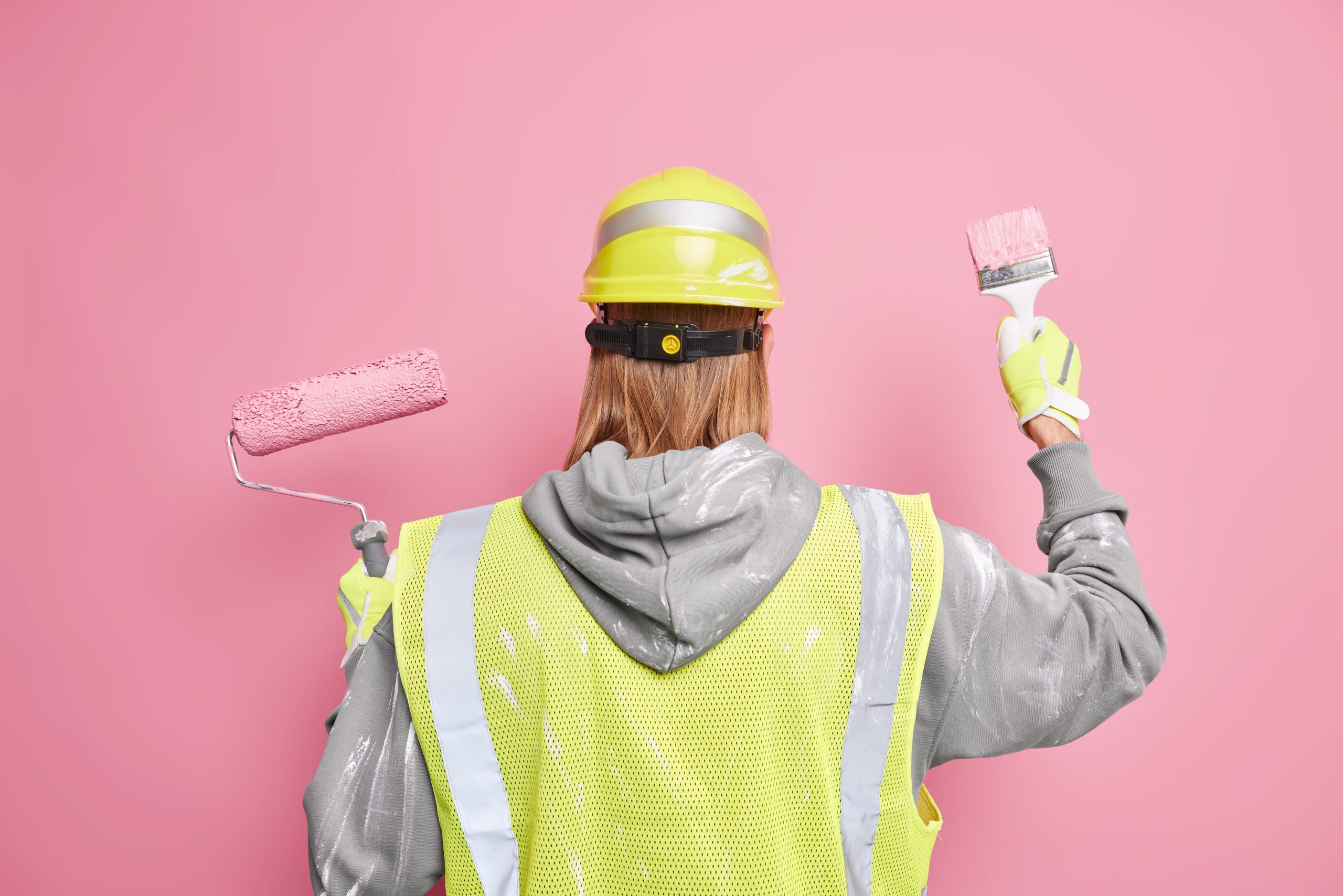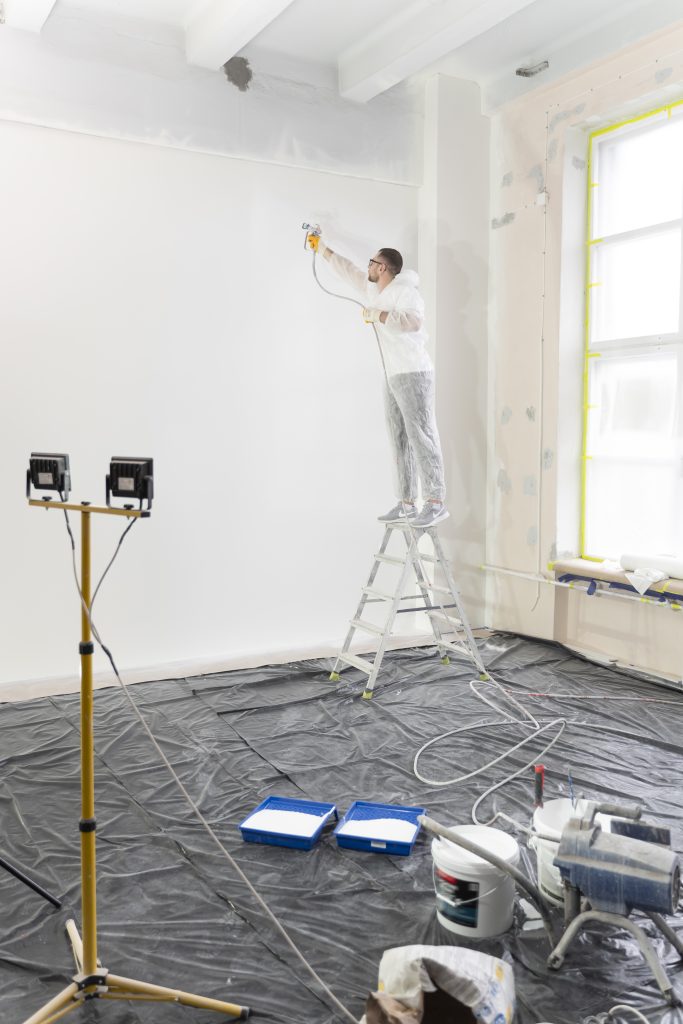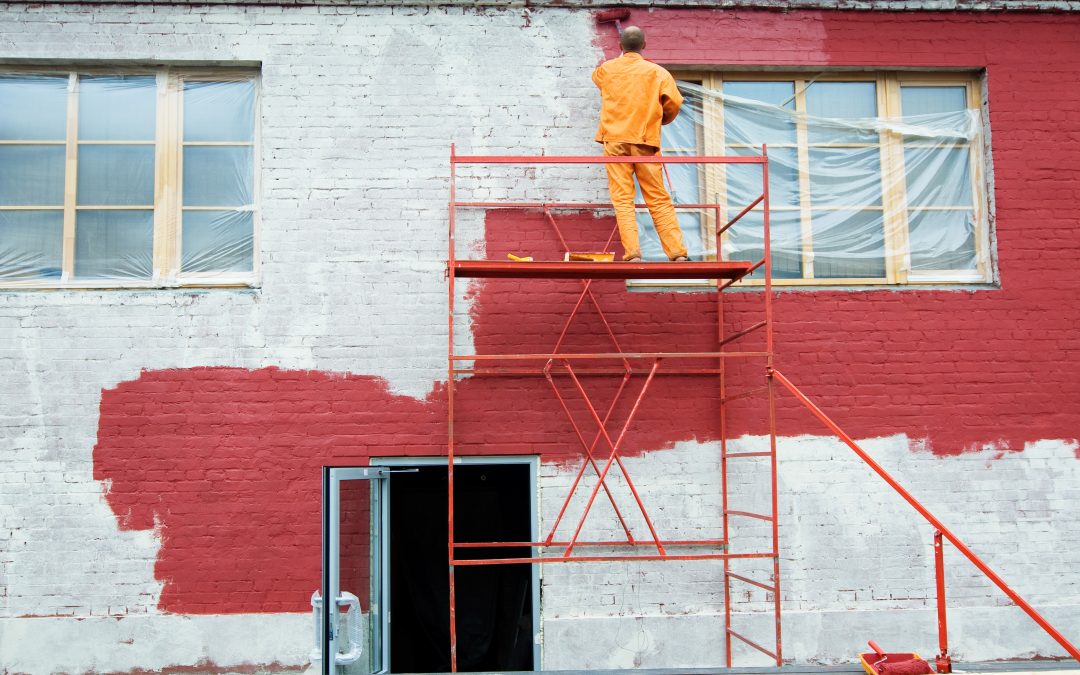One of your biggest business expenses might be hiring a commercial painting company. Choosing the right commercial painting company is essential whether you’re painting the outside of your building, remodeling your storefront, or redesigning your office space. To be sure you’re choosing the right painters for your project, there are some warning signs you should look out for, though, as not all businesses are created equal.
1. Lack of Proper Licensing and Insurance
Make sure a painting company has all the required insurance and licenses before hiring them. A trustworthy commercial painter should to be able to show you documentation of their insurance and license. It’s a serious red flag if they are unable or unwilling to provide this information.
The following is an example of the licenses and insurances that a trustworthy commercial painting company must have:
-
Business License
This is a prerequisite in order to legally operate any kind of business in a given area. It ensures that the commercial painting company is permitted to operate in the area and complies with local laws.
-
Contractor’s License
Painting contractors have to have a specialized contractor’s license in many states or regions. This license serves as proof that the contractor is qualified to perform commercial painting work and that they have fulfilled all necessary requirements, including passing exams and completing training.
-
Liability Insurance
Liability insurance shields the painting company and its customers against financial harm brought on by injury or property damage caused by the contractor’s work. It pays for costs like maintenance, hospital visits, and legal bills in the event of accidents or damage to property.
-
Worker’s Compensation Insurance
Employees who are hurt on the job or fall ill are covered by worker’s compensation insurance. For injured workers, it helps pay for medical costs, missed income, and other benefits. Because there is a higher risk of workplace injuries in the construction and contracting industries, this insurance is especially important.
-
Bonding
Being bonded indicates that the painting company has invested in a surety bond, which offers customers some financial security. The bond could reimburse the client for any losses or damages suffered in the event that the contractor defaults on their contractual duties.
-
Pollution Liability Insurance
Some commercial painting projects use possibly harmful chemicals or materials that might pollute the environment or cause pollution. Insurance against pollution liability covers claims related to pollution or contamination brought on by the contractor’s work.
-
Auto Insurance
The painting company should have commercial auto insurance to cover accidents, property damage, and injuries including company vehicles if they use cars for business travel.
2. No Portfolio or References
Reputable business painting firms usually have a portfolio of completed jobs with satisfied customers. Be wary of a company if they are unable to provide you with references or examples of their work. It is required to view proof of their abilities and dependability prior to employing them.

3. Unrealistically Low Quotes
Even though everyone enjoys a good deal, painting companies that offer quotes that are much lower than those of their competitors should be avoided. High-quality materials and expert labor are expensive, so be wary of quotes that seem too good to be true. Unreasonably low costs could be a sign of inexperience, poor quality materials, or cost-cutting.
4. Poor Communication and Professionalism
When working with any contractor, communication is essential. A painting company should raise red flags if they act unprofessionally, take a long time to reply to your questions, or give you unclear answers. Throughout the entire process, a reputable commercial painting contractor should be accommodating, open, and courteous.
5. Lack of Detailed Contracts
For every commercial painting project, full contract is necessary. It should specify the materials to be used, the timetable, the scope of work, and the terms of payment. Be wary of painting companies that refuse to provide you a formal contract or that only offers you an unclear agreement. Future miscommunications and conflicts may result from an incomplete contract.
Here’s a typical list of details that should be included in a contract with a commercial painting company:
-
Scope of Work
Give a detailed description of the exact painting services that will be rendered, including the areas that need to be painted, the surfaces that need to be ready, and any extra work like sealing, sanding, or priming.
-
Materials and Products
State the kind and caliber of paint, coatings, primers, and other supplies that will be used. Add any preferences or specifications you may have for low-VOC (volatile organic compound) or green goods.

-
Timeline
State when the project will begin, how long it should take, and any completion dates or benchmarks. Make sure you account for any potential delays and how you plan to handle them.
-
Preparation and Cleanup
Describe the steps involved in setting up the workspace, protecting nearby fixtures and surfaces, and clearing away waste and debris when the project is finished.
-
Payment Terms
Describe the project’s overall cost, taking into account labor, materials, and any other expenses. State the acceptable methods of payment, the payment schedule, and the deposit amount (if any).
-
Warranty/Guarantee
State which guarantees and warranties the painting company offers, such as coverage for materials and their work. Describe the length of the warranty and the procedure for fixing any problems or flaws.
-
Insurance and Liability
Make sure you understand what insurances the painting company has, such as worker’s compensation and liability insurance. List the people accountable for any injuries or damages took during the project.
-
Change Orders
Establish the processes for communicating, approving, and pricing modifications to the initial scope of work. State any extra expenses or deadline extensions related to change orders.
-
Termination Clause
Determine the conditions, including grounds for termination, notice obligations, and any fines or costs that may be paid for, under which either party may end the agreement.
-
Dispute Resolution
Describe the dispute resolution processes (mediation, arbitration, or litigation) that will be used to settle any disagreements or conflicts that may come up during the project.
-
Signatures
For proof of agreement to the terms and conditions of the contract, both parties must sign.
By including such details in the contract, the commercial painting company and the client will maintain mutual understanding, clarity, and transparency, which lowers chances of misunderstandings or conflicts during the project.
6. Substandard Materials and Techniques
Reputable commercial painting companies offer a long-lasting professional finish by using premium materials and tried-and-true techniques. Should a business take short cuts by employing cheap paint or outdated methods, the outcome might be inadequate and require costly future repairs. Before you hire them for your project, find out what supplies and methods they use.
You must give careful thought to hiring a commercial painting company to make sure you’re getting the most out of the money you spend. You can prevent potential headaches and expensive errors by keeping an eye out for warning signs like not enough insurance and licensing, a lack of references or a portfolio, unreasonably low quotes, poor communication, a lack of detailed contracts, and inferior materials and techniques. For your commercial painting project, pick a trustworthy painter with a track record of producing high-quality work and superb customer support.
We at Stretch Paints are not like the others. We follow the strictest industry standards as members of the Master Painters and licensed contractors with the Queensland Building & Construction Commission. In addition, we value excellence and professionalism as members of the Housing Industry Association. Call us now!


Recent Comments